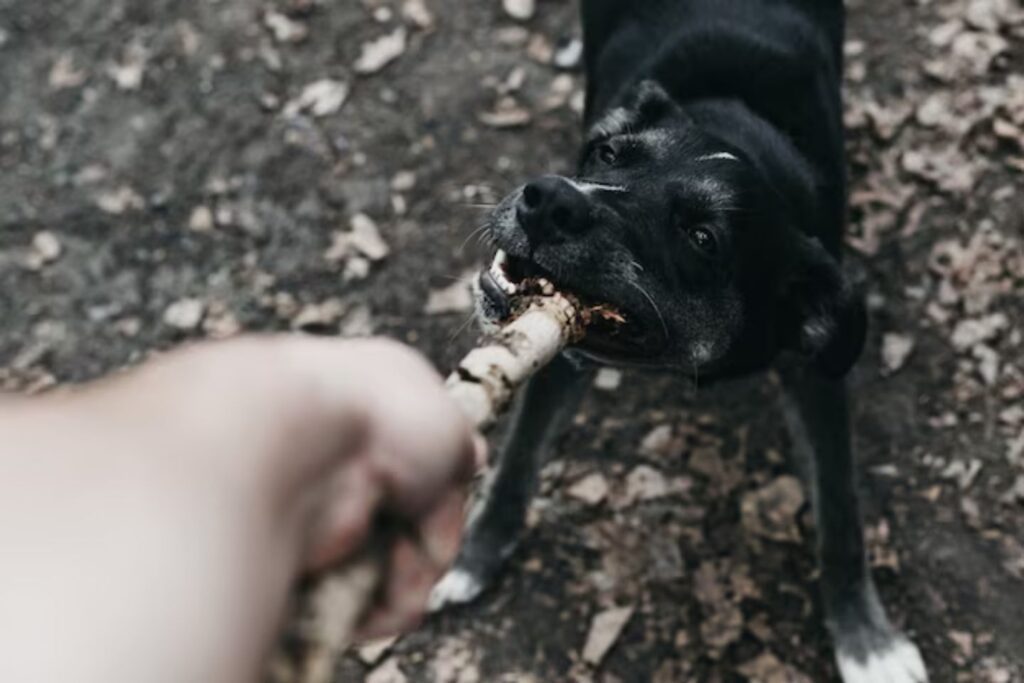It’s always sunny down in California. But beyond the perpetual sunshine, the state is a haven for dog lovers. It’s estimated that at least 85 million people in the U.S. have some kind of pet, and 40% are dogs. Apparently, the state of California ranked 5th as their population spoils their dogs so much, such as putting them in a stroller.
California is a dog lover’s paradise, but with that comes the responsibility of knowing your furry friend’s legal boundaries. Dive into the nitty-gritty of dog laws in California, and you’ll discover rules and protections for pets and people. Get ready to explore owner liabilities if Fido decides to bite, how local leash ordinances keep tails wagging safely in public spaces, and what happens when animal cruelty rears its ugly head.
If you’re bringing a pooch across state lines or wondering about the muscle behind animal control agencies, we’ve got those answers, too. Stick around—you’ll leave armed with knowledge that could save you from fines or court time.
Understanding California’s Dog Bite Laws


What Constitutes a Dog Bite Incident in California
In the sunny state of California, not all sunshine and beach days, especially if you’re dealing with a dog bite. Under the law, a dog bite incident isn’t just when Fido decides to chomp on someone; it’s any situation where skin breaks and there’s bleeding because Spot thought your hand was his chew toy. So, what should you do right after such an unpleasant encounter? Well, first things first: wash that wound. Next up is exchanging info with the pet owner and snapping pics of any injuries for evidence—just think CSI: Canine Style.
| State | Dog-Related Injury Claims in 2022 |
| California | 1,954 |
| Florida | 1,331 |
| Texas | 1,017 |
| New York | 969 |
| Michigan | 905 |
Under California law, dog owners are strictly liable for any damages caused by their dogs biting another person or animal. This means that the owner is responsible for paying for any medical bills, lost wages, and other damages resulting from the bite, regardless of whether the owner was negligent in controlling the dog.
It is important to note that the victim does not need to prove that the dog had a history of aggression or that the owner knew or should have known that the dog was dangerous. The only defense available to the owner is if the victim was trespassing on the owner’s property or provoking the dog at the time of the bite.
In 2022, California has the highest number of dog-bite injury claims, amounting to 1,954. If you’ve been bitten by someone else’s furry friend while out in public or lawfully on private property, know this—the Golden State doesn’t care if it was the first time Rover got snappy; owners are strictly liable for damages suffered due to their pets’ actions. No ifs or buts about whether they knew their pooch had the mean streak of a werewolf under that fluffy exterior.
Leash Laws and Public Safety in California
If you’re a dog owner in the Golden State, understanding local leash laws isn’t just about avoiding fines—it’s crucial for keeping our streets safe. Think of it like this: A secure leash is like your pet’s seatbelt, designed to protect your furry friend and everyone around them.
Navigating Local Leash Ordinances
In California, leash laws are as diverse as the state itself. From bustling Los Angeles sidewalks to San Francisco’s foggy trails, each city or county might have its own set of rules for keeping dogs on a tight rein. But one common thread runs through all these regulations: public safety.
The Leash Law indicates that you’re dogs should be leashed whenever they are in public or outside of dog parks. Leashes should atleast not exceed six feet. If you won’t bother to follow this law, you can end up paying a $100 to $500 fine
Dog Owners’ Responsibilities Beyond the Leash
California law slaps strict liability onto dog owners whose pets cause injury—that means “my dog has never done that before.” won’t fly as an excuse (Penal Code § 399). And really, this is all about keeping folks safe and holding pet owners accountable for their furry friends’ actions. If you keep this in mind, the probability of having your dog bite strangers will lessen. Its like hitting two heads with one stone.
Dangerous Dogs and Breed-Specific Legislation
In addition to civil liability, dog owners in California can also face criminal charges if their dog attacks and causes serious injury or death. Under California law, a dog owner can be charged with a felony if their dog causes serious bodily injury or death to another person while off-leash and not under the owner’s control. The owner can also be charged with a misdemeanor if their dog attacks and causes injury, even if the injuries are not serious.
But what is considered a “dangerous dog”? The state of California states that a dog is considered as one if:
- A dog that, when unprovoked, engages in behavior requiring defensive action by any person on two separate occasions within the previous 36 months while both the person and the dog are off the owner’s or keeper’s property.
- A dog that, when unprovoked, bites a person causing an injury less severe than as defined in Section 31604.
- A dog that, when unprovoked, on two separate occasions within the prior 36-month period, has killed, seriously bitten, inflicted injury, or otherwise caused harm while attacking a domestic animal off the owner’s or keeper’s property.
It is important to take steps to prevent your dog from attacking others, such as properly training and socializing your dog, keeping your dog on a leash in public, and securely fencing your yard. If your dog does attack someone, it is important to cooperate with authorities and seek legal advice to protect your rights and minimize your liability.
Designation of Dangerous Dogs
Under California law, a dog can be designated as dangerous if it has bitten a person or another animal without provocation or if it has exhibited aggressive behavior that makes it likely to bite in the future. Once a dog is designated as dangerous, the owner must comply with a number of requirements, including keeping the dog securely enclosed and muzzled when in public. You can face a fine of $500 up to $1000
Breed-Specific Regulations
While some cities and counties in California have enacted breed-specific legislation targeting certain breeds of dogs, such as pit bulls, the state as a whole does not have such regulations. However, it’s important to note that even if no breed-specific regulations exist in your area, any dog can be designated as dangerous if it exhibits aggressive behavior.
Hearing and Appeals Process
If your dog has been designated as dangerous, you have the right to a hearing to contest the designation. You may also appeal any decision made at the hearing. It’s important to note that if your dog has been designated as dangerous, you may be held liable for any damage or injuries caused by the dog, even if you were not aware of its aggressive tendencies.
If there are no further instances of the behavior outlined in Section 31602 within 36 months from the date of being designated as a potentially dangerous dog, the dog will be eligible for removal from the potentially dangerous dogs list. It’s important to note that removal can also occur before the 36-month period expires if the dog’s owner or keeper can demonstrate to the animal control department that changes in circumstances or actions taken, such as training the dog, have effectively reduced the risk to public safety. This flexibility ensures that responsible ownership and mitigation of potential risks are taken into account.
Frequently Asked Questions
What are the requirements for transporting dogs in vehicles in California?
California law requires that dogs transported in vehicles must be secured in a manner that prevents them from distracting the driver or being thrown from the vehicle in the event of an accident. This can be achieved through the use of a crate, harness, or other safety restraint system. Violating this law can result in a fine of up to $100.
How does California define and handle dangerous dog behavior?
California law defines a dangerous dog as one that has bitten a person or another animal without provocation or one that has exhibited aggressive behavior. Owners of dangerous dogs are required to take certain precautions, such as keeping the dog on a leash and muzzled in public and obtaining liability insurance. In extreme cases, dangerous dogs may be seized and euthanized.
What are the legal obligations for reporting and keeping a found stray dog in California?
If you find a stray dog in California, you must report it to the local animal control agency within 48 hours. You may be required to keep the dog for a certain period of time while attempts are made to locate the owner. If the owner is not found, the dog may be put up for adoption or euthanized. (Source)
What are the implications if animal control is called on your dog?
If animal control is called on your dog, they may investigate the situation to determine if any laws have been violated. This could result in fines, legal action, or even the seizure and euthanasia of your dog. It is important to follow all animal control laws and regulations to avoid any negative consequences.
What are the recent changes to pet ownership laws in California?
As of January 1, 2020, pet stores in California are required to sell only rescue animals, rather than animals from commercial breeders. This law is intended to reduce the demand for animals from puppy mills and other inhumane breeding operations.
What protections are included in the California Bill of Rights for dogs?
The California Bill of Rights for dogs includes provisions such as the right to adequate food, water, shelter, and veterinary care, as well as the right to be free from abuse, neglect, and cruelty. This law is intended to ensure that dogs in California are treated with the respect and care they deserve. (Source)
Been In A Dog-Related Injury?
In the aftermath of a dog-related injury, finding experienced legal representation is paramount to ensure your rights are upheld and to pursue the compensation you deserve. At The Personal Injury Center, we specialize in connecting individuals with skilled attorneys who can represent them and guide them through the complexities of the legal system.
From investigating the circumstances of the incident to negotiating with insurance companies and advocating for fair compensation, our attorneys are dedicated to advocating for the best interests of our clients every step of the way. Don’t face the aftermath of a dog-related injury alone—reach out to The Personal Injury Center today and let us connect you with the skilled legal representation you need to seek justice and move forward with your life.



